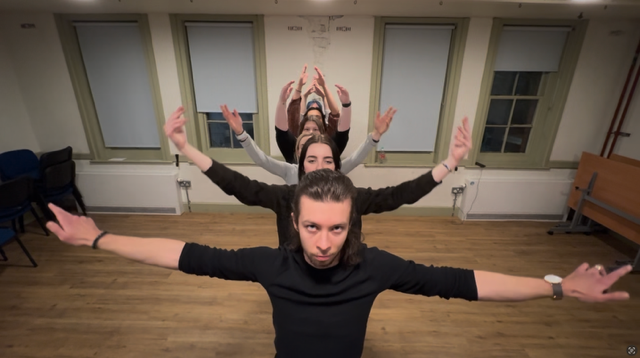News Article
Director’s Preview: Bacchae
15 Feb 25
Director Jeremy Davies introduces one of the greatest ancient Greek tragedies, Bacchae by Euripides.
What attracted you to this play for your directorial debut at SLT?
My relationship with Bacchae goes back to the days of the pandemic when I pledged to a Classics Facebook group to produce Bacchae and Aristophanes’ Frogs as a double bill. I initially focused on Frogs, writing a transliteration, and adding some contemporary jokes and melodies for the songs. I quickly realised however, that writing a transliteration of Bacchae was going to be harder, especially when I read David Stuttard’s translation and instantly knew I had found the text I wanted to produce. The rhythm of his poetry is so strong and it naturally lends itself to musical composition, which has been key for me. Frogs is back on the shelf, for now. But I would still like to fulfil my pledge one day!
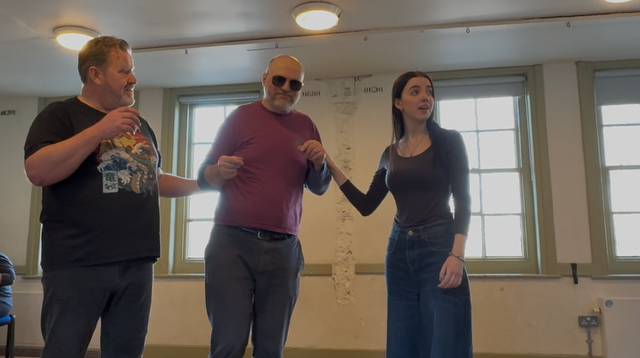
How do you see the relevance of classical Greek drama to us today?
Thinking of Bacchae in particular, there are very relevant themes to consider. One relates to concerns expressed over the future of democracy as a political ideology. The year Bacchae was produced, 405 BC, Athens was in a serious political crisis, arguably of its own making, and its fledgling democracy was under threat. Bacchae offered some advice to its citizens – if you’re too rigid about your own identity as Athenian citizens, not open to welcoming foreigners and their cultural practices, if you refuse an international outlook, then your democracy will collapse. It is easy to read that argument across to our own times.
Bacchae can also be viewed as an allegory for the unfolding climate crisis: humanity (Pentheus) thinks it can control nature, but nature (Dionysus) will not be controlled. Pentheus’ palace collapses, he dies and his family are exiled, harsh realities that are being played out across the world today as the planet continues to warm alarmingly. I can think of other themes that are relevant, but this is the big one for me.
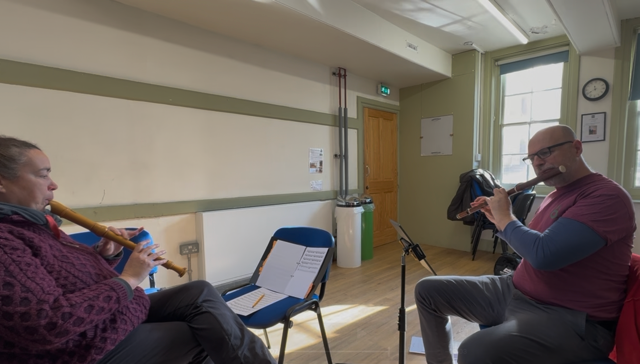
What have been the directing challenges for you?
Working with an original text, albeit in translation rather than a modern adaptation like those currently being performed in the West End, is a challenge for any modern director, not least because the theatrical conventions of the ancient Athenian theatre don’t translate easily to the modern stage. This includes the use of only three actors wearing full masks, playing all the characters, the long Messenger speeches that describe action off stage and, most challenging of all, the presence throughout of the Chorus of fifteen masked men, singing and dancing to music we can only guess at.
I decided the way to try and remain faithful to the original 405 BC production while making it exciting for a modern audience, was to concentrate on the Chorus, composing music they could move to while reciting Stuttard’s text. This gradually developed with some of the odes being sung and then latterly including parts for two woodwind instruments. I’ve sought to give the music the feel of ancient Greece while being easy on the modern ear. The herdsman’s description of the Bacchae (Dionysus’ followers) as “so chaste, so modest”, not “drunk or drugged” prompted a more ethereal, mythic setting, as opposed to the notorious crazed versions produced over the past forty or so years.
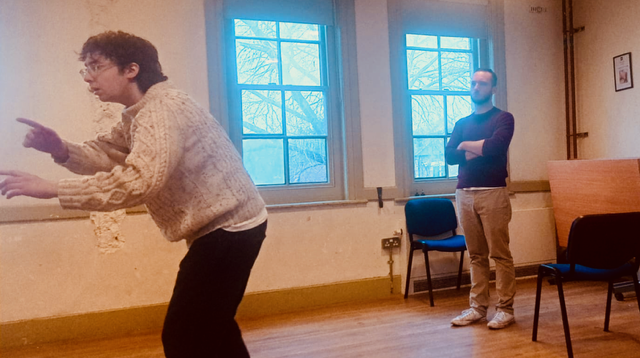
Tell us about the characters we'll meet
Knowledge of the Theban family tree is useful: Cadmus was the old former king and founder of Thebes. He and his wife had four daughters: Agave, whose son was Pentheus the new king of Thebes, Autonoë, whose son, Actaeon, was famously ripped apart by his own hunting dogs, Ino and Semele, the mother of Dionysus. Although the family relationships are made explicit in the tragedy, Pentheus and Dionysus make no mention of the fact they are actually first cousins (another layer of complexity when thinking of the modern relevances above). This is irrelevant to Dionysus who sees his cousin as the enemy who refuses to acknowledge his divinity (his father was Zeus) and accept his cult which he has brought over from Asia. In his role as theatre director, Dionysus creates a tragedy manipulating Pentheus’s mother, Agave, her father Cadmus and his blind friend, the seer Teiresias as well as the Chorus, to exact his terrible revenge.
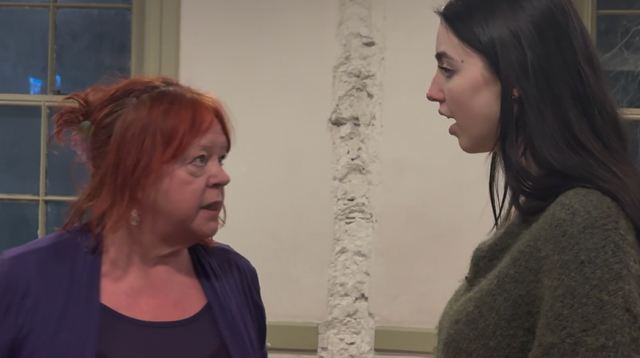
What do you hope your audiences will take away from the show?
Bacchae is above all a spectacle and so I hope the audience will enjoy it as such. Time isn’t linear in this tragedy, the past and the future merge into the present while Dionysus deliberately presents himself ambiguously so as to confuse both those on stage and the audience. This suggests that whatever thoughts the audience have about what they’ve witnessed, there will always be more to consider. The English words ‘theatre’ and ‘theory’ share the same Greek root, ‘theoria’, ‘to see’.
Theatre, then, presents a theory of how life is played out in practice, questioning the choices we all make individually and collectively in the real world. So after being entertained, I hope the questions raised by Bacchae will prompt some deeper discussions about our own futures.
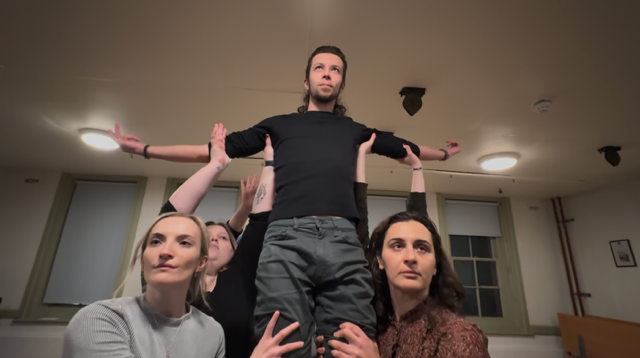
Describe the show in three words
Colourful, dynamic, tragic.
